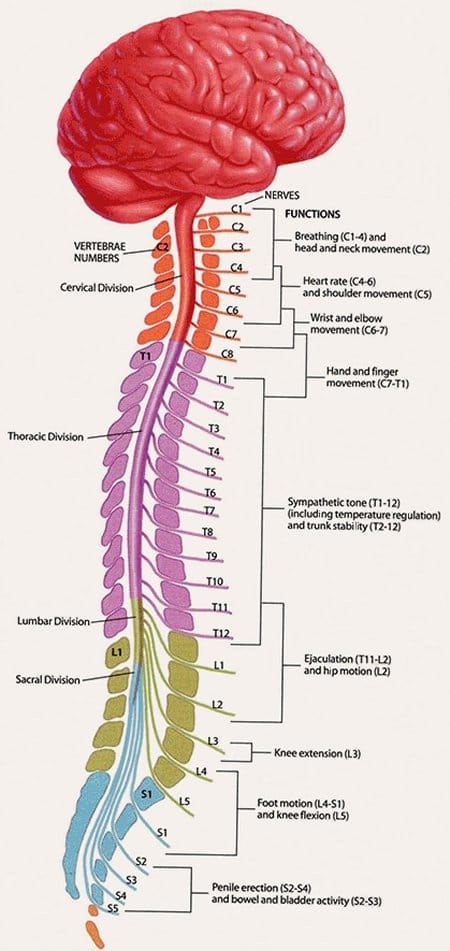
Researchers Help Paralyzed Men Regain Movement in Legs
Researchers at Louisville University, UCLA and the Pavlov Institute of Physiology have helped four wheelchair bound men with lower body paralysis to regain movement in their legs by zapping their spinal cords with electricity. The researchers built upon the work of another study that found that epidural stimulation helped a paralyzed man in Oregon to regain some movement in his limbs. The findings of the current study could help researchers develop devices for those suffering from paralysis.
Electrical Pulses Assist With Paralysis Recovery and Better Overall Health
In the current study, the researchers used an electrical stimulator to send pulses into the four men’s spinal cords, thereby allowing their spinal cords to reuse the broken neural network and control the movements of their limbs. Because of the stimulation, the men are now able to move their toes, ankles and hips. The treatment also improved their overall health with improved blood circulation, muscle mass, and greater general well-being.
Thousands of People in the U.S. Suffer from a Spinal Cord Injury
According to the Centers for Disease Control, an estimated 200,000 people suffer from a debilitating spinal cord injury in the U.S. The spinal cord is a bundle of nerves that runs down the middle of the back and sends signals back and forth between the brain and the body. A spinal cord injury disrupts these signals, resulting in full or partial paralysis, depending on the severity and where the injury occurred in the spinal cord. However, the current research shows great promise in the ability of those with a spinal cord injury to recover.







